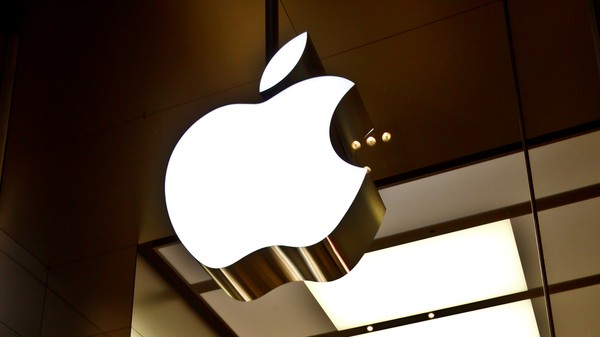Six ways Apple could correct its enterprise blunders

Second in a series. Out of fairness, I follow up my long analysis "The enterprise will never embrace Apple" with some advice for the company. There's room in the enterprise if only Apple made more effect. None of these suggestions is outside the reach of CEO Tim Cook and the core leadership.
Perhaps Apple stays out of the enterprise game because the top brass knows that they have little expertise in the general directions that big business is heading. Their lack of desire (or capability) for true Active Directory integration, for example, is already public knowledge. When it comes to virtualization and the move to virtual desktops, Apple has no public strategy for allowing (or supporting) such an infrastructure on OS X devices, at least first party. To put it plainly, Apple's overall game plan for cozying up to the wants of enterprise is nearly nonexistent.
More precisely, perhaps Apple figures it shouldn't get into a game mistakenly forgotten about years ago -- for the sake of tarnishing its good name. If perfection and secrecy are the golden rules for Apple product development, then perhaps the void in the enterprise is actually a differentiator. The consumer market, on the back of iOS, treats Apple so swell that keeping out of the bare knuckle enterprise sector may be the foretold plan for the Cupertino, Calif.-based company all along.
If you've spent any time researching the prospect of taking your business in an Apple direction, your frustrations are likely similar to that of what I've experienced and heard of from colleagues. A lack of any leverage on pricing for bulk purchases. A sub-part approach to business level support for OS X-based hardware. And headaches in every direction when it comes to fitting OS X into an existing Windows AD ecosystem. But perhaps I fret too heavily; maybe those organizations going Apple are past the usual grievances with Apple.
But I digress. While I think Apple would take my suggestions on deaf ears, there are a few core things the company could easily do to improve its reputation in the enterprise:
1. Get off the high horse and embrace the channel. The very reason Windows and its supporting ecosystem is so strong in big business is squarely due to the value-added offerings and sales positioning from traditional partners. I know this is against the grain for the entire sales strategy, but the company will never grow its foothold by standing behind an Apple Store and retail-only sales model.
NOTE: I know there a sprinkling of Apple Authorized Resellers out there, but ask anyone in IT about how much of a joke the entire program is.
2. Get the channel involved in product development and lifecycle process. Again, I highly doubt Apple would concede defeat in this realm of super-secret development, but it would give the transparency the enterprise so clearly lackd. And this lack of transparency creates the distrust between the organization and business that is core to their butting heads.
3. Create a support structure for enterprise that actually matters. The current Apple Care offerings for business level critical support is laughing stock compared to the likes of what Lenovo, Dell, Microsoft, and HP (to name a few) offer their buyers. Apple needs to get away from the boutique shop mentality that surrounds its consumer offerings and realize that big business doesn't have time to deal with Genius Bar concierge.
4. Make your intentions on dropping products known with plenty of advance notice. The debacle surrounding the death of Xserve is a perfect example of Apple's stuck up "us first" attitude. If you're going to build a legion of followers around solid enterprise-grade products, you better have good intentions to support them with a stated lifecycle. And if that plan needs to change, be transparent -- the "oh, by the way" approach to killing products only fosters enemies.
5. Stop forcing IT to treat Apple devices as second-class citizens in the workplace. It's squarely Apple's fault that its own devices cannot behave nicely in the larger workplace. Apple's hands-off approach to management of its technology needs to change, and change fast. From full Active Directory and Group Policy integration, to competing Windows features like BitLocker and DirectAccess, Apple needs to focus less on coolness and more-so on making workers' lives easier.
6. Realize that virtual desktops are the future, and Mac hardware can't be the center of the Apple experience forever. From VMWare to Citrix to Microsoft, the direction of computing is heading towards VDI and virtual infrastructure as a whole. If Apple believes that a shiny Mac on every worker's desk is the only way to get the Apple experience, then management is greatly mistaken and the company will be left behind.
Even though I primarily support small to midsize businesses in my day-to-day consulting, my reservations with going Apple are still heavily based around similar above gripes. Keeping business IT running smoothly is more than a debate around Windows vs Mac vs Linux. It's an overarching, unifying argument for stability, processes, and known quantities that Apple lacks in every category.
Photo Credit: nui7711/Shutterstock
 Derrick Wlodarz is an IT Specialist that owns Park Ridge, IL (USA) based technology consulting & service company FireLogic, with over 8+ years of IT experience in the private and public sectors. He holds numerous technical credentials from Microsoft, Google, and CompTIA and specializes in consulting customers on growing hot technologies such as Office 365, Google Apps, cloud hosted VoIP, among others. Derrick is an active member of CompTIA's Subject Matter Expert Technical Advisory Council that shapes the future of CompTIA exams across the world. You can reach him at derrick at wlodarz dot net.
Derrick Wlodarz is an IT Specialist that owns Park Ridge, IL (USA) based technology consulting & service company FireLogic, with over 8+ years of IT experience in the private and public sectors. He holds numerous technical credentials from Microsoft, Google, and CompTIA and specializes in consulting customers on growing hot technologies such as Office 365, Google Apps, cloud hosted VoIP, among others. Derrick is an active member of CompTIA's Subject Matter Expert Technical Advisory Council that shapes the future of CompTIA exams across the world. You can reach him at derrick at wlodarz dot net.